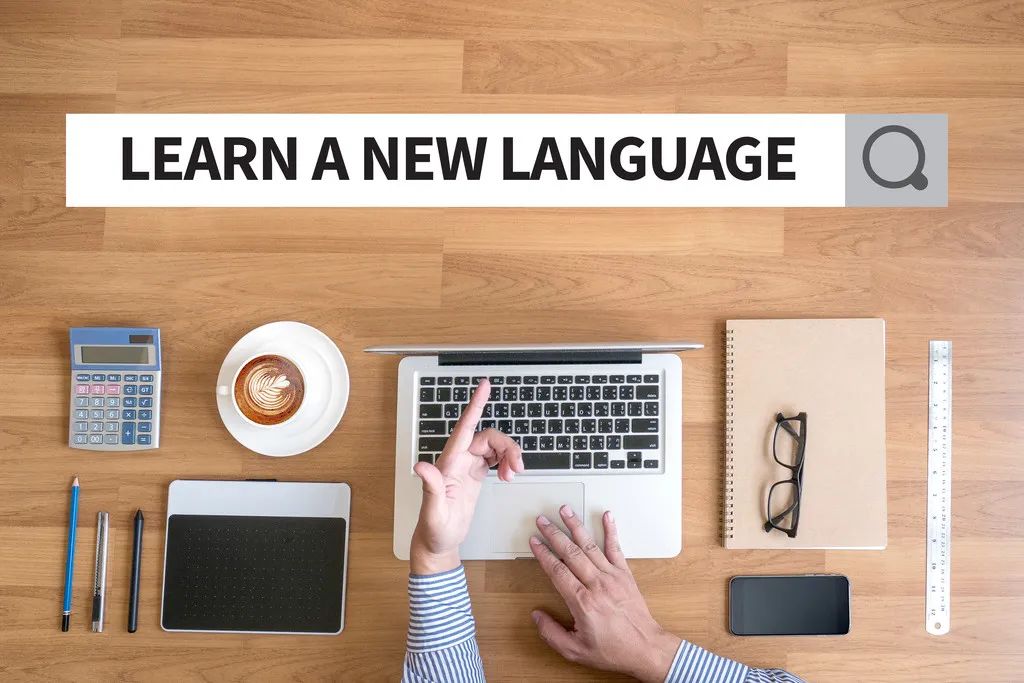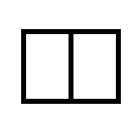
Point 1: Usage of Modals Can, May, Must in Declarative Sentences:
(1) Indicates ability, permission, and possibility. When indicating ability, it is generally translated as “can” or “be able to,” meaning possessing a skill, especially an innate ability. For example: She can swim fast, but I can’t. (她能游得很快,但我不能。)
I can see with my eyes. (我用眼睛看。) Could is the past tense of can, indicating past ability.
Be able to do something often refers to achieving something after effort, time, and labor. Is/am/are able to do something; was/were able to do something.
(2) Indicates permission, often used in spoken language. For example: You can use my dictionary. (你可以用我的字典。)
(3) Indicates conjecture or possibility, meaning “may,” often used in negative sentences and questions; in this case, can’t is translated as “impossible.”
For example: Can the news be true? (这个消息会是真的吗?)—Can it be our teacher? (那个人有可能是我们老师吗?)—No, it can’t be our teacher. He is on a visit to the Great Wall. (不可能。咱们老师正在游览长城呢。)
[Example Question]—I think Miss Gao must be in the library. She said she would go there. —No. She __be there, I have just been there. A.can’t B.mustn’t C.needn’t D.wouldn’t
[Analysis] According to the text “I have just been there,” it should be “impossible,” so can’t indicates conjecture. [Answer] A
(1) The past tense of can, meaning “could” or “was able to,” indicating past ability. For example: He could write poems when he was 10. (他十岁时就会写诗。)
(2) In questions, could indicates polite tone, without implying past tense. For example: Could you give me a hand? (你能帮我个忙吗?)—Could I use your pen? (我能用一下你的钢笔吗?) —Yes, you can. (可以。) (In responding, do not use could.)
(1) Indicates request or permission, more formal than can. For example: May I borrow your bike? (我可以借你的自行车吗?) You may go home now. (现在你可以回家了。)
[Example Question]—_______ I borrow your MP3? —Sure. Here you are. A. May B.Should C.Must D. Would
[Analysis] Here it indicates a request, meaning “Is it okay to…” The answer is: A
(2) Indicates conjecture or possibility, meaning “may” or “perhaps,” generally used in affirmative sentences. For example: It may rain tomorrow. (明天可能会下雨。) She may be at home. (她可能在家呢.) May not translates to “may not.”
(3) The past tense of may is might, indicating lower possibility than may. For example: He is away from school. He might be sick. (他离开学校了,可能是他生病了。)
(4) Indicates hope, prayer, or wish, often translated as “wish.” Usually used as may + subject + verb. For example: May you have a good time. (祝你过得愉快。) May you be happy! (祝你幸福!) May you succeed! (祝你成功!)
(1) Must indicates a subjective view, meaning “must” or “have to.” For example: You must stay here until I come back. (在我回来之前你必须呆在这儿。) Must I finish my homework right now? (我必须现在交作业吗?) (Must leads the question)
Affirmative answer: yes, you must.
Negative answer: No, you needn’t/ don’t have to.
(2) Its negative form mustn’t indicates “must not,” “absolutely not,” or “forbidden, not allowed.” For example: You mustn’t play with fire. (你不许玩火。) You mustn’t be late. (你一定不要迟到。)
(3) Must indicates a strong conjecture, used in affirmative sentences, indicating 100% certainty. For example: The light is on, so he must be at home now. (灯亮着,他现在肯定在家。)
(4) Must and have to both mean “must,” but with different emphasis:
Must emphasizes the speaker’s subjective view.
Have to emphasizes the need for external reasons, can also be translated as “have to.”
I must go to school and learn some knowledge. (我必须去学校上课学一些知识。) (I want to go back.)
I have to go to school because the holiday is over. (假期结束了我不得不回学校上课了。)
② Must has no changes in person and number, while have to has the third person singular form:
Has to and verb past tense: had to
Future tense: will have to
Must not = mustn’t indicates prohibition…
When must is questioned, affirmative answers use must; negative answers use needn’t and don’t have to.
(1) When need acts as a modal verb: indicates “need” or “must,” mainly used in negative sentences and questions, with its negative form being needn’t, meaning “no need, not necessary.”
When asking with need, affirmative answers are must, negative answers are needn’t or don’t have to. For example: —Need I do my homework now? —Yes, you must. (是的。)—No. you needn’t /don’t have to. (不, 你不必。)
(2) Need can also act as a lexical verb, with changes in person, number, and tense.
If the subject is a person sb.:
sb. need(s) sth. (某人需要某物)
sb. need to do sth. (某人需要去做某事)
Need’s third person singular is needs; past tense is needed. To negate, use don’t/doesn’t/didn’t.
For example: I need to pass the exam. (我需要通过这次考试。) He needs to learn English. (他需要学习英语。)
If the subject is a thing sth.:
Sth. need doing (某事需要被做) = need to be done
In this case, pay attention to two points:
① The active form of the gerund doing has a passive meaning;
② The gerund can be changed to its infinitive passive form without changing the sentence’s meaning. For example: Your car needs washing. = Your car needs to be washed. (你的车需要洗了。)
Shall indicates seeking others’ opinions (mostly used in the first and third person), for example: Shall we go out for a walk? (我们出去散步好吗?)
In English, we can propose our suggestions or seek others’ opinions in various ways.
Shall means “would you like…?” or “is it okay to…?” used in the first person, indicating the future, while will can be used for any person.
(1) Use “Let’s do…” to propose a suggestion. For example: Let’s go for a walk after supper.
(2) Use “What/How about…?” to propose a suggestion; about follows with a noun or gerund. For example: What about/How about a drink? (要不要喝一杯?) What about/How about taking Tom with us? (要不要带Tom一起?)
(3) Use “Why not…?” to propose a suggestion, meaning “why not…” not follows with the base form of the verb. “Why not…?” is actually a shortened form of “Why don’t you/we…?” For example: Why not meet at the school gate at eight? (为什么不在学校门口八点见面呢?) Why don’t we stay here another day? (为什么不再待一天呢?)
(4) Use “Would you like…?” to propose a suggestion, meaning “Would you like…?” Would you like can be followed by a noun or infinitive. For example: Would you like a cup of tea? (你想要一杯茶吗?) Would you like to go and see her? (你想去看她吗?)
Thus, if we say: “Would you like to go swimming?” in English, it can be expressed in several ways:
Shall we go for a swim? (我们去游泳好吗?)
Let’s go for a swim, shall we? (我们去游泳好吗?)
What about/How about going swimming? (要不要去游泳?)
Why not go for a swim? (何不去游泳?)
Would you like to go for a swim? (你想去游泳吗?)
What do you think of going for a swim? (你觉得去游泳怎么样?)
Should means “should,” indicating advice, suggestion, obligation, or responsibility. For example: We should protect ourselves. (我们应该保护自己。)
Should not = shouldn’t + base form of the verb
Had better means “had better,” with no changes in person, followed by the base form of the verb; its negative form is: had better not. For example:
We had better go home now. (我们最好现在回家。)
You had better not go home now. (你最好现在不要回家。)
Should and had better can be interchangeable.
Should not = shouldn’t and had better not can be interchangeable.
Will indicates willingness, intention, or plan, and can be used for various persons. For example: I will help you if I’m free this afternoon. (今天下午如果我有空,我就会帮你。)
② It is the marker of simple future tense., will + base form of the verb
1. The form of will in the there be structure and its sentence transformation.
Since the structure of “simple future tense” can be expressed using “will + base form of the verb,” the simple future tense form of the there be structure is there will be. (一定不能说 there will have)
For example: There are many students in our school. →There will be many students in our school. (我们学校里有很多学生。→我们学校里将会有很多学生。) There will be a sports meeting next week. (下周将会有一个体育会议。) It must not be said: There will have a sports meeting next week.
2. The difference between will and be going to do sth.
① Be going to indicates intention, plan, or arrangement to do something or a premonition of something about to happen.
Will indicates a future time that is relatively distant, for example: He is going to Beijing on National Day. (他国庆节要去北京。)
He will write a book someday. (他将来会写一本书。)
② Be going to indicates something that will certainly happen in the future based on subjective judgment, while will indicates something that is objectively bound to happen in the future.
For example: I am going to be a teacher. (我打算当老师。)
He will pass the exam because of hard work. (他会因为努力学习而通过考试。)
③ In the main clause of conditional sentences, be going to is generally not used, while will is often used, for example: I will go to school if I feel better. (如果我感觉好些,我就会去上学。)
Point 2: Responses to Questions Containing Modals:
1. For questions introduced by may, possible responses include: Yes, you may. Yes, of course. Yes, certainly. Sure.
No, you mustn’t. No, you can’t.
2. For questions introduced by must, possible response formats are: Yes, …must. No, …needn’t/ don’t have to.
3. Could in questions indicates a polite tone, without implying past tense. For example: Could you do me a favor? (你能帮我个忙吗?)—Could I use your pen? (我能用一下你的钢笔吗?)—Yes, you can. (可以。) (Responses do not use could.)
4. Shall introduced questions used in the first person, indicating seeking others’ opinions or polite requests. Possible response formats include:
Yes, please. All right. No, thank you.
5. Possible response formats for would you… include: Yes, I will. (No, I won’t.) Sure. (I’m sorry, I can’t.) All right/ OK/ With pleasure. Certainly. (No, thank you.) Yes, please.
[Example Question]—Would you give me a hand and pass my thanks to Lily? —________.
A.That’s right B.With pleasure C.It doesn’t matter D.No trouble
[Analysis] A means “that’s right,” B means “I’m happy to help,” C means “it doesn’t matter,” and D means “no trouble.” The answer is: B
6. Will you…? question response formats can use yes,…../no…… or I’d be glad to…..
Point 3: Different Negative Meanings of Modals:
1. (1) can’t can be translated as “cannot,” for example: I can’t play basketball. (我不会打篮球。)
(2) When the sentence expresses conjecture, use can’t to mean “impossible,” for example: He can’t be ill. He is playing chess with Tom. (他不可能病了,他正和Tom 下棋呢。)
(3) Can’t can also be used to respond to questions like “May I…?” For example: May I come in? (我可以进来吗?) No, you mustn’t./ can’t. (不,你不能。)
(4) Can’t can also be used in fixed phrases. For example: can’t help doing (cannot help but…), can’t wait to do something (cannot wait to do something), for example: She can’t help crying. (她不禁大哭起来。) The children can’t wait to open the box. (孩子们迫不及待地想打开盒子。)
2. May’s negative form is may not, translated as “may not,” for example: He may not be at home. (他也许不在家。)
3. (1) Mustn’t means “must not” or “forbidden,” for example: He mustn’t leave his room. (他不许离开他的房间。) You mustn’t talk in class. (你们不可以在课堂上说话。)
(2) Mustn’t can also be used in the negative response to a request introduced by may. For example: —May I stand here? (我可以站在这里吗?) —No, you mustn’t (can’t). (不,不行。)
4. Needn’t means “not necessary.” For example: You needn’t meet him unless you’d like to. (你不需要见他,除非你愿意。)
5. Shouldn’t means “should not.” For example: You shouldn’t feel so unhappy over such little things. (对于这种小事,你不应该感到这么不高兴。)
Point 4: Usage of Modals Indicating Conjecture:
1. “Modal verb + base form of the verb” indicates conjecture about the present.
1. Must indicates strong conjecture, 100% certainty, generally used in affirmative sentences.
For example: He must be at home because the light is still on. (他肯定在家,因为灯还亮着。)
2. Should indicates a high possibility of conjecture, less than must.
For example: It is already 10 o’clock now; they should be there. (现在已经十点了,他们应该在那儿。)
3. Can indicates conjecture, generally used in negative sentences or questions.
For example: Who is knocking at the door? Can it be the postman? (谁在敲门?可能是邮递员吗?)
Could indicates conjecture with a weaker tone than can, leaving room for doubt.
—Could it be an animal? (可能是动物吗?)
—It could not be, because it is not moving. (不可能,因为它没有动。)
4. May indicates conjecture, used in affirmative sentences. Might can also indicate conjecture but indicates a lower possibility than may.
For example: The man may be your new teacher. (那个人可能是你的新老师。)
—Where is Mr. Li? (李先生在哪里?)
—He might be working in his office. (他可能在办公室工作。)
[Summary of Confusing Points Regarding Modals]
Confusing Point 1: Can and Be Able To:
Both indicate ability; however, can only has the base form “can” and the past tense “could,” while in other tenses, be able to is used. Moreover, be able to often refers to achieving something after effort, time, and labor.
For example: Jim can’t speak English. (吉姆不会说英语。)
He could speak English at 5. (他五岁时就会说英语。) We’ll be able to see him next week. (下星期我们将会见到他。)
He has been able to drive. (他已经会开车了。)
I’m sure you’ll be able to finish it quickly. (我相信你能迅速地完成。)
We were able to reach the top of the mountain at noon. (我们能在中午到达山顶。)
Confusing Point 2: Can and May
1. Both can and may can be used to seek opinions or permission, meaning “can,” generally interchangeable.
For example: Can/ May I help you? (我能帮助你吗?)
2. The difference between can and may when indicating conjecture/possibility:
Can indicates unwillingness, May does not question.
Mother (must) certainly does not question.
1) In affirmative sentences, use might, may, must, and do not use can. For example: She may be in the classroom. (她可能在教室里。)
2) In negative sentences, use can’t (impossible), do not use may or must.
3) In questions indicating conjecture, use can, do not use might, may, or must.
Where can they be now? (他们现在可能在哪儿?) That can’t be true. (那不可能是真的。)
Confusing Point 3: May Be and Maybe
|
|
|
|
|
May as a modal verb, be as the base form of the verb
|
In a sentence, as the predicate
|
|
|
Adverb, meaning “perhaps” or “maybe,” equivalent to perhaps
|
At the beginning of a sentence, as an adverbial
|
For example: He may be wrong, but I’m not sure. (也许他错了,但我也不确定。)
Confusing Point 4: Can’t and Mustn’t
1. Can’t according to its basic usage can be translated as:
(1) Cannot. For example: I can’t speak English. (我不会说英语。)
(2) Cannot. For example: We can’t do it now because it’s too dark. (天太黑了,我们现在干不了。)
(3) In negative sentences indicating conjecture, meaning “impossible,” for example: The man can’t be our teacher because he is much younger than our teacher. (那个人不可能是咱们老师,他年轻得多。)
2. Mustn’t means “forbidden” or “not allowed,” used to express commands and indicates strong tone. For example: You mustn’t play football in the street. (你不可以在街上踢足球,太危险了。)
Confusing Point 5: Must and Have To
1. Must emphasizes personal will and subjective necessity. Have to emphasizes objective necessity and can be used in present, past, and future tenses.
For example: I know I must study hard. (我知道我必须努力学习。)
My brother was very ill, so I had to call the doctor in the midnight. (我弟弟病得厉害,我只得半夜里把医生请来。)
I haven’t got any money with me, so I’ll have to borrow some from my friend. (我身上没带钱,只好向朋友借点了。)
He said they must work hard. (他说他们必须努力工作。)
2. Have to can be used in various tenses, while must is only used in the simple present or future.
For example: The composition is due to hand in this morning, so I had to finish it last night. (作文今天早晨到期,因此我不得不昨天晚上完成。)
[Analysis of Example Questions Regarding Modals]
1. —________ you pass me a pen? I’d like to write down the phone number. —Sure. Here it is.
A. Can B. Need C. Might D. Must
[Analysis] From the question, this sentence indicates a request or permission. The answer: A
2. —May I go to the cinema, mum? — Certainly, but you ________ be back by 11 o’clock.
A. can B. may C. must D. need
[Analysis] According to the question, this does not indicate conjecture, but rather a requirement from the mother to the child, so the answer is C, meaning “must.” The answer: C
3. You ______ get there by bus. A. don’t need B. needn’t to C. don’t need to D. need don’t to
[Analysis] From option A, need as a lexical verb should be followed by to for correctness. Option B, needn’t as a modal verb should remove to, so the answer is C.
4. You _______ worry about me. It’s nothing serious. A. can’t B. mustn’t C. needn’t D. won’t
[Analysis] From the text “It’s nothing serious,” the first sentence means “you don’t need to worry about me,” so the answer is C. This question is easily confused with B, mustn’t meaning “forbidden,” thus incorrect. The answer: C
5. —Excuse me. Is this the right way to the Summer Palace? —Sorry, I’m not sure. But it _______ be.
A. might B.mustn’t C.can’t D.must
[Analysis] This tests the use of the modal verb might indicating conjecture. “I’m not sure” indicates the speaker’s uncertainty, so must use might. The answer: A
6. The man in the office___be Mr. Black, because he went home just now.
A.mustn’t B.may not C.can’t D.needn’t
[Analysis] From the text “he went home just now,” it can be inferred that the person in the office cannot be Mr. Black. Mustn’t means “absolutely not,” may not means “may not,” needn’t means “not necessary,” and can’t means “impossible,” so the answer is C.
7. —Can you go surfing with us this afternoon?
—I’d like to, but I __ look after my sister at home, because my mother is ill.
A.need B.must C.have to D.should
[Analysis] From the context “my mother is ill,” it indicates an objective requirement, so the answer is C.
8. —May I take this book out of the reading room? —______. Please read it here.
A. Certainly B.No, you needn’t C.No, you mustn’t D.No, you may not
[Analysis] The negative response to “May I…?” is No, you can’t/ mustn’t; the negative response to “Must I…?” is No, you needn’t/don’t have to; the negative response to “Can I…?” is No, you can’t. In spoken communication, one must understand the emotional differences in the sentences. The answer: C

-
Classification Organization | Word Recordings, Textbook Recordings, Grammar Sorting, Class Notes for Each Grade
-
Classification Organization | Word Recordings, Textbook Recordings, Grammar Sorting, Class Notes, Unit Compositions
-
2022 Mid-term Exam Preparation | Written Expression Writing Guidance (1-15)
-
How to help children escape the cycle of “I’m too careless, actually I know everything” during the mid-term exam?
-
Two comparison photos in the circle of friends touch countless parents: Child, this is why I have to push you into a prestigious school!
-
Not analyzing the exam paper means the mid-term exam was in vain! (Including analysis methods)
Follow our official account,to get more English learning resources
You click every like, we take it seriously as affection.















